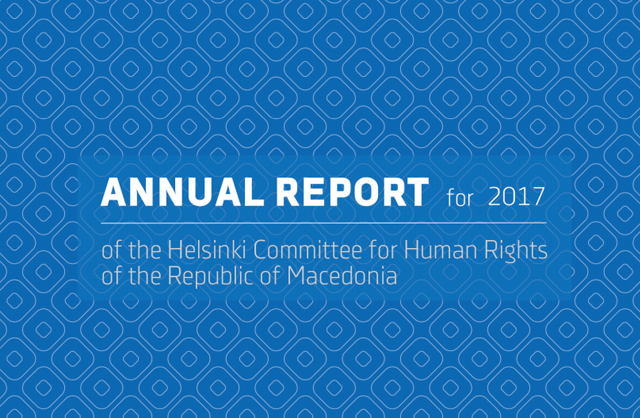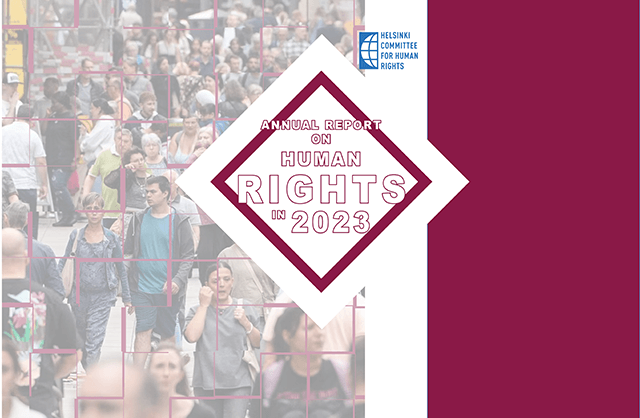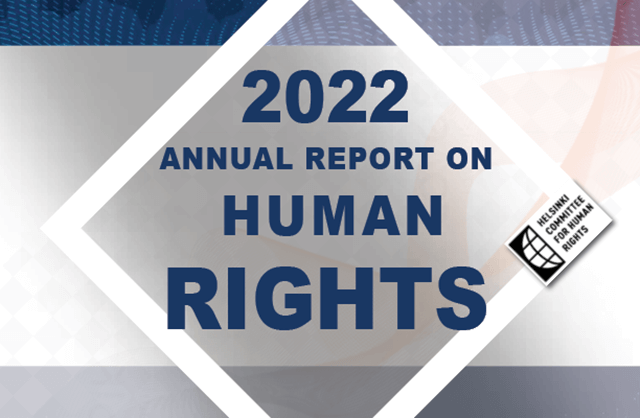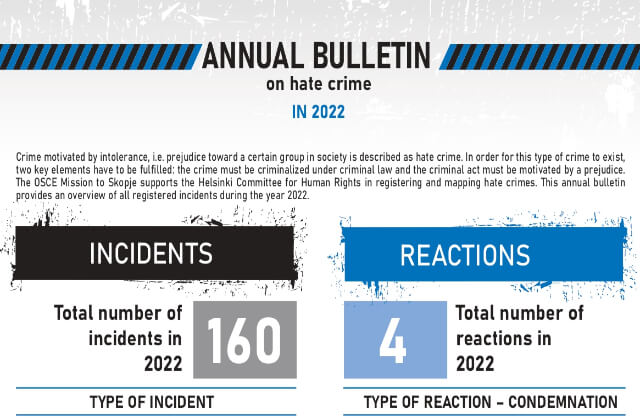Annual report on human rights in 2017
May 9, 2018

This past year was marked by critical moments which strengthened our society, but at the same time posed a risk to democracy, the rule of law and the exercising of human rights. The civil society organizations that monitor, investigate and inform about the abuses and violations of human rights and freedoms, the exercising of authority and the functioning of the legal system, were under constant attack like never before. Luckily, this attempt to shrink the space for action of the CSOs did not reap the desired results for the ones who ordered it, although the CSOs that were critical of the previous government were subjected to financial controls by both, the Public Revenues Office and the Financial Police at the request of the Public Prosecutor. The controls occurred in continuity until June 2017, and we are still expecting the final outcomes of the investigations.
This report covers the events immediately after the parliamentary elections which took place in December 2016, after a long period of political crisis during which human rights were brutally violated. At the same time, it covers the long-lasting process of change that began after the elections and the change in government. The report gives an overview of the situation with human rights in the country, the measures undertaken for the purpose of their protection, but also provides a summary on how the state has acted in the areas that are in the strategic focus of the Committee, both from the aspect of the services provided to the citizens, as well as in terms of legislation and policies.
The report explores the areas in which citizens exercise their civil and political rights, social and economic rights, the closed institutions and police conduct, the rights of vulnerable groups, people with disabilities, the Roma and the LGBTI community. The report, in separate sections, addresses the phenomena that have, for the most part, been the cause of human rights violations – discrimination, hate speech and hate crimes.
Considering the fact that in the reporting period, possibly the most severe act of violence in the handing over of power in the history of independent Macedonia took place – the violent raid into the highest 6 legislative body, the Parliament, and the physical violence against the MPs from the new majority on 27 April, a separate part of the report focuses on these events, for which the Committee submitted a special report to the Primary Public Prosecutor’s Office, where 28 criminal acts were identified.
After the new Government of the Republic of Macedonia was established, a reform process started that can generally be assessed as inclusive, due to the involvement of CSOs both in the preparation of the Plan 3-6-9 and the implementation of the proposals in the Blueprint Document for Urgent Democratic Reform, and in the working groups that were formed in the relevant ministries. This report gives an overview of the reform process and its implementation with appropriate recommendations on how to overcome the weaknesses in the system.
In addition to the identified violations of human rights and the conclusions about inadequate policies and practices in the actions of the state administration and judicial authorities, the Committee gives its recommendations on how to overcome the situation in all the areas where the exercising of and respect for human rights can be improved.


